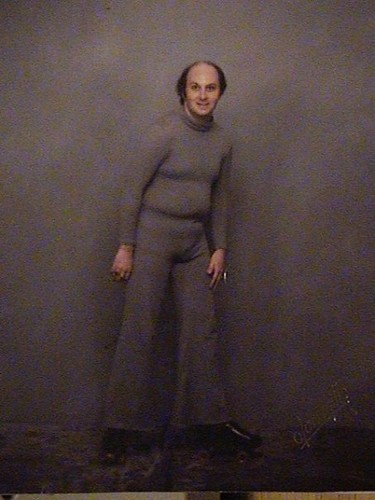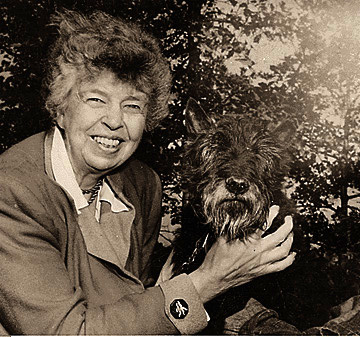
So with that painful rant out of the way – the main thing most people attribute to their success in the art world is that infamous word, luck. Like most of my blogs, I enjoy defining things. So here is the definition of luck:
LuckAn unknown and unpredictable phenomenon… it sounds mysterious doesn’t it? Well it is, luck is basically a opportunity that falls into your lap. So how do you increase your chances of finding these rare unicorn like opportunities that will aid you in what ever it is you want to accomplish? Well let me share with you some secrets of luck!
noun: an unknown and unpredictable phenomenon that leads to a favorable outcome.
The first concept I will go over is the studies done by “Richard Wiseman”; and yes just in case you were wondering, this doctor is a very Wiseman.

Sometime during the late 80’s and early 90’s, Richard Wiseman put advertisements in newspapers and magazines, asking people who felt constantly lucky or unlucky to participate in some studies. Over the years, he studied 400 men and women ranging from ages 18 to 84.
He noticed that people who considered them selves unlucky constantly missed opportunities, where as people who considered them selves lucky, readily noticed and took advantage of these opportunities. As an example of one of the studies he did, I will quote the man him self:
“I gave both lucky and unlucky people a newspaper, and asked them to look through it and tell me how many photographs were inside. On average, the unlucky people took about two minutes to count the photographs, whereas the lucky people took just seconds. Why? Because the second page of the newspaper contained the message: "Stop counting. There are 43 photographs in this newspaper." This message took up half of the page and was written in type that was more than 2in high. It was staring everyone straight in the face, but the unlucky people tended to miss it and the lucky people tended to spot it.”As he continued doing these studies, Dr. Wiseman noticed that unlucky people were much more tense than lucky people. A trait common with a lot of unlucky people was that they were too focused on something – like how bad their day was, or some other trivial detail. Where as lucky people, were more relaxed and open to see what was going on – not particularly focused on anything, just kind of going with the flow.
He boiled down the attributes of lucky people into three main points:
1) “Unlucky people often fail to follow their intuition when making a choice, whereas lucky people tend to respect hunches. Lucky people are interested in how they both think and feel about the various options, rather than simply looking at the rational side of the situation. I think this helps them because gut feelings act as an alarm bell - a reason to consider a decision carefully.”In fact, he took some of his unlucky subjects and trained them to utilize these points in their lives. One month later when he touched bases with them again, a dramatic 80% of them felt happier, more satisfied with their lives, and above all they felt much luckier.
2) “Unlucky people tend to be creatures of routine. They tend to take the same route to and from work and talk to the same types of people at parties. In contrast, many lucky people try to introduce variety into their lives. For example, one person described how he thought of a color before arriving at a party and then introduced himself to people wearing that color. This kind of behavior boosts the likelihood of chance opportunities by introducing variety.”
3) “Lucky people tend to see the positive side of their ill fortune. They imagine how things could have been worse. In one interview, a lucky volunteer arrived with his leg in a plaster cast and described how he had fallen down a flight of stairs. I asked him whether he still felt lucky and he cheerfully explained that he felt luckier than before. As he pointed out, he could have broken his neck.”

So luck is more of a skill that can be developed rather than something you are blessed with. If anything this study proves how powerful our minds can be, if we can learn how to harness them neurons. The concept of “going with the flow” is also apparent in such books as “The Celestine Prophecy” and “The Secret”; both of which I highly suggest if you want to learn more about luck.
Another great point on luck that I find to be true is, to generate opportunity you need to work as hard as you can. The harder you work at something, the more opportunity you will come across – but its up to you to be open enough to see these opportunities and utilize them to your advantage. If you work hard your whole life and feel as though you should be further along than you are… you must be acting like an unlucky person!

Its easy to get down on your self when you make a mistake or you miss an opportunity. Instead of dwelling on your mistakes, try to see the positive side and learn. This way you will grow as opposed to forever living in regret. Every experience in life is a learning experience – in fact if you think about winning and loosing, or making mistakes… all of these are just man made concepts. Why should either or have a negative context to them? As the brilliant Eleanor Roosevelt said, “No one can make you feel inferior without your consent.” You hold the keys to weather you want to feel negative or positive about something.

I love Eleanor Roosevelt quotes… here is an other gem from her vault of wisdom.
“Learn from the mistakes of others. You can’t live long enough to make them all yourself.”So be positive, act like a lucky person, work hard to generate opportunities, and learn from others as well as your own mistakes! Go!! Do it now! Hurry up before you miss it!
If you want to read the article I got a lot of this information from, here is the link to it.